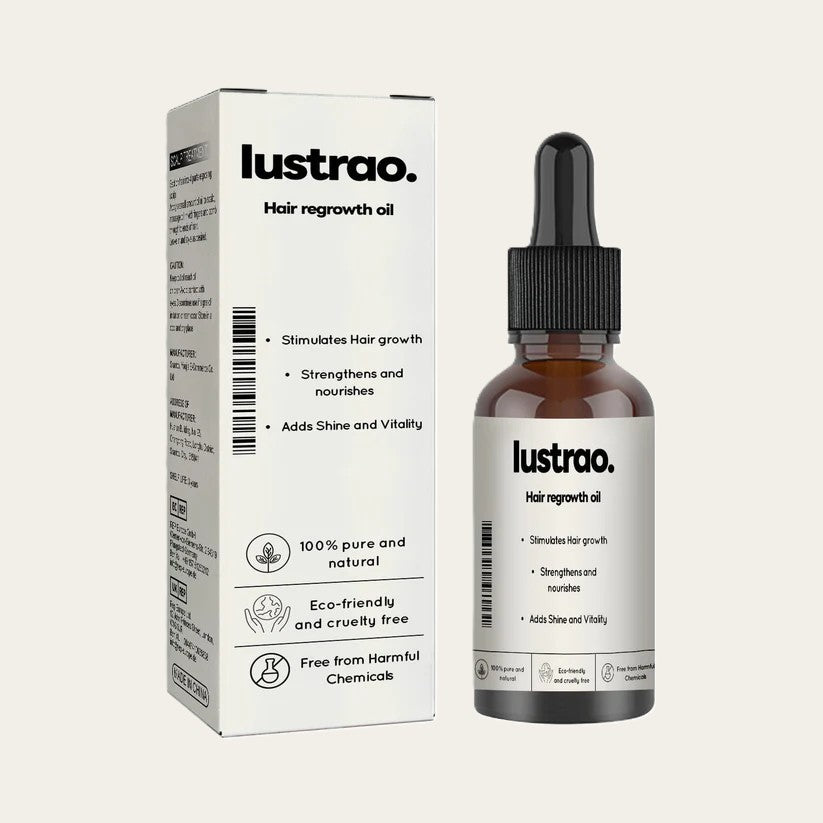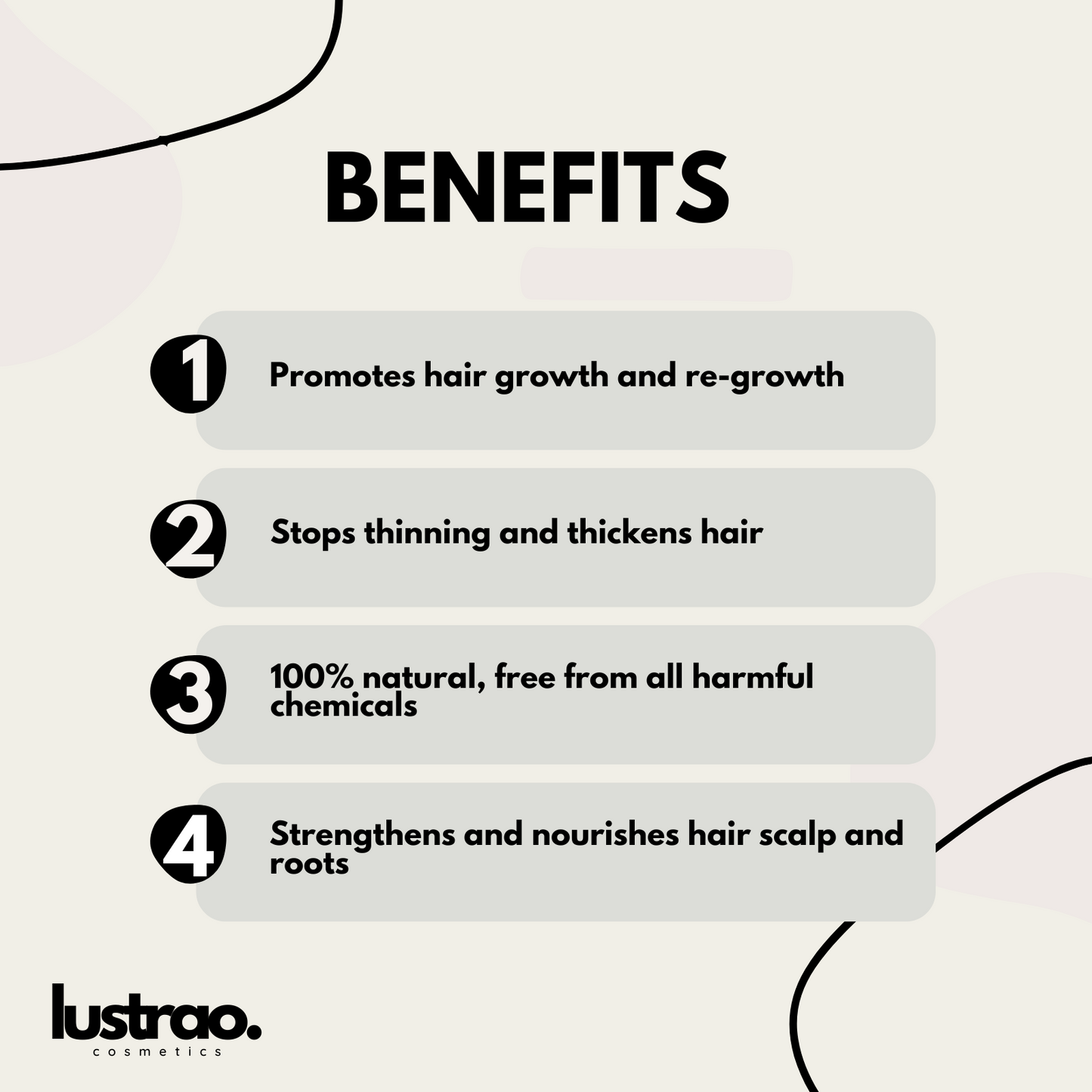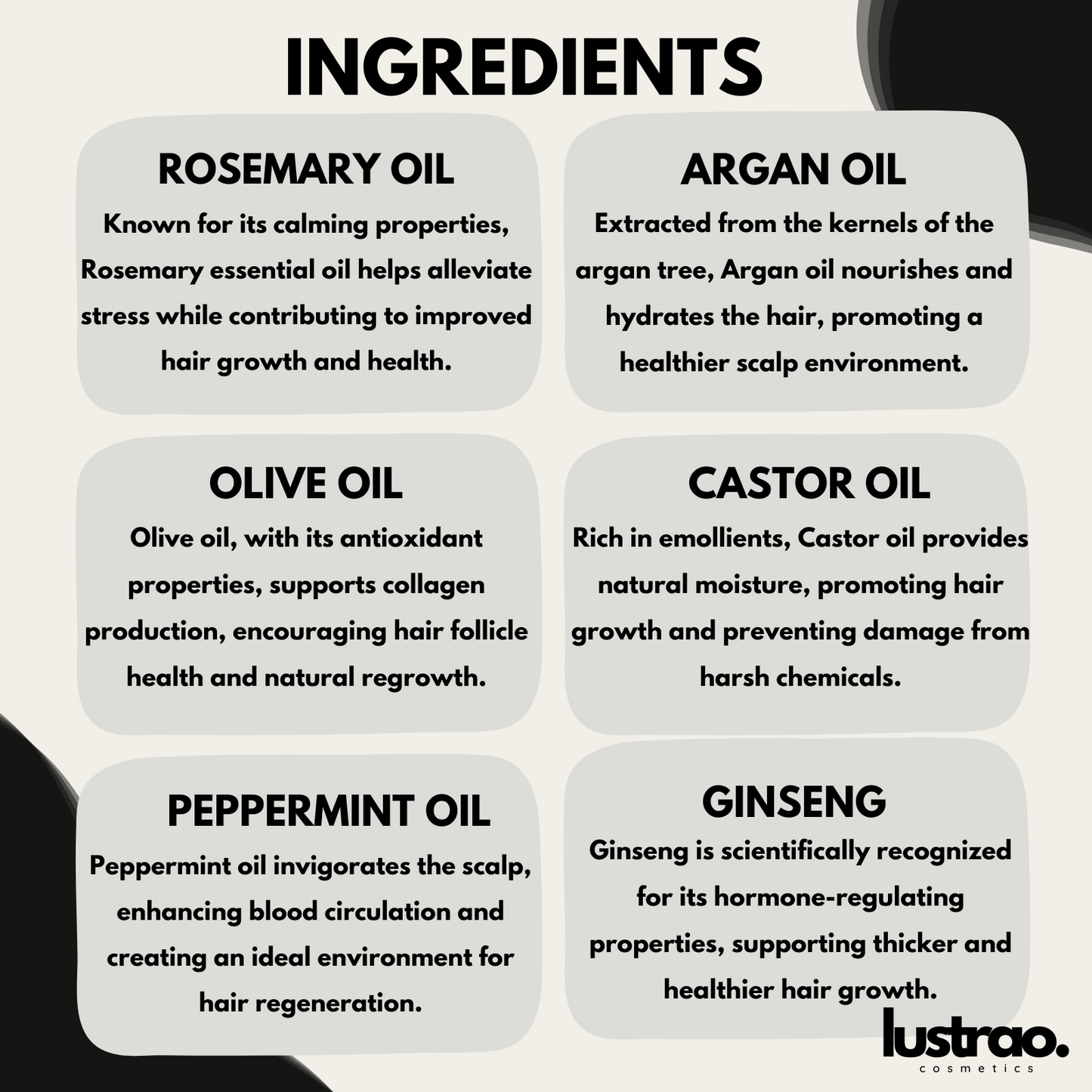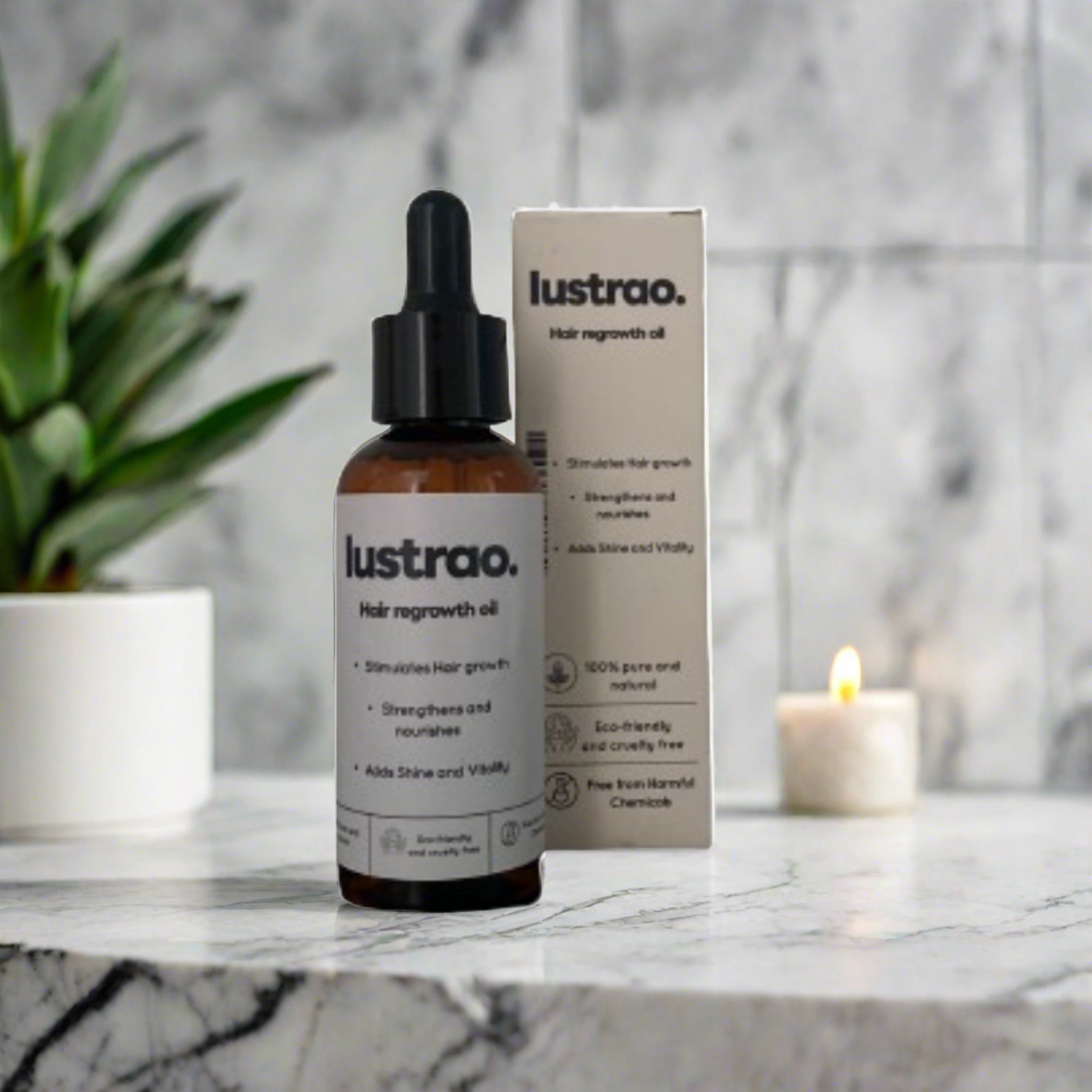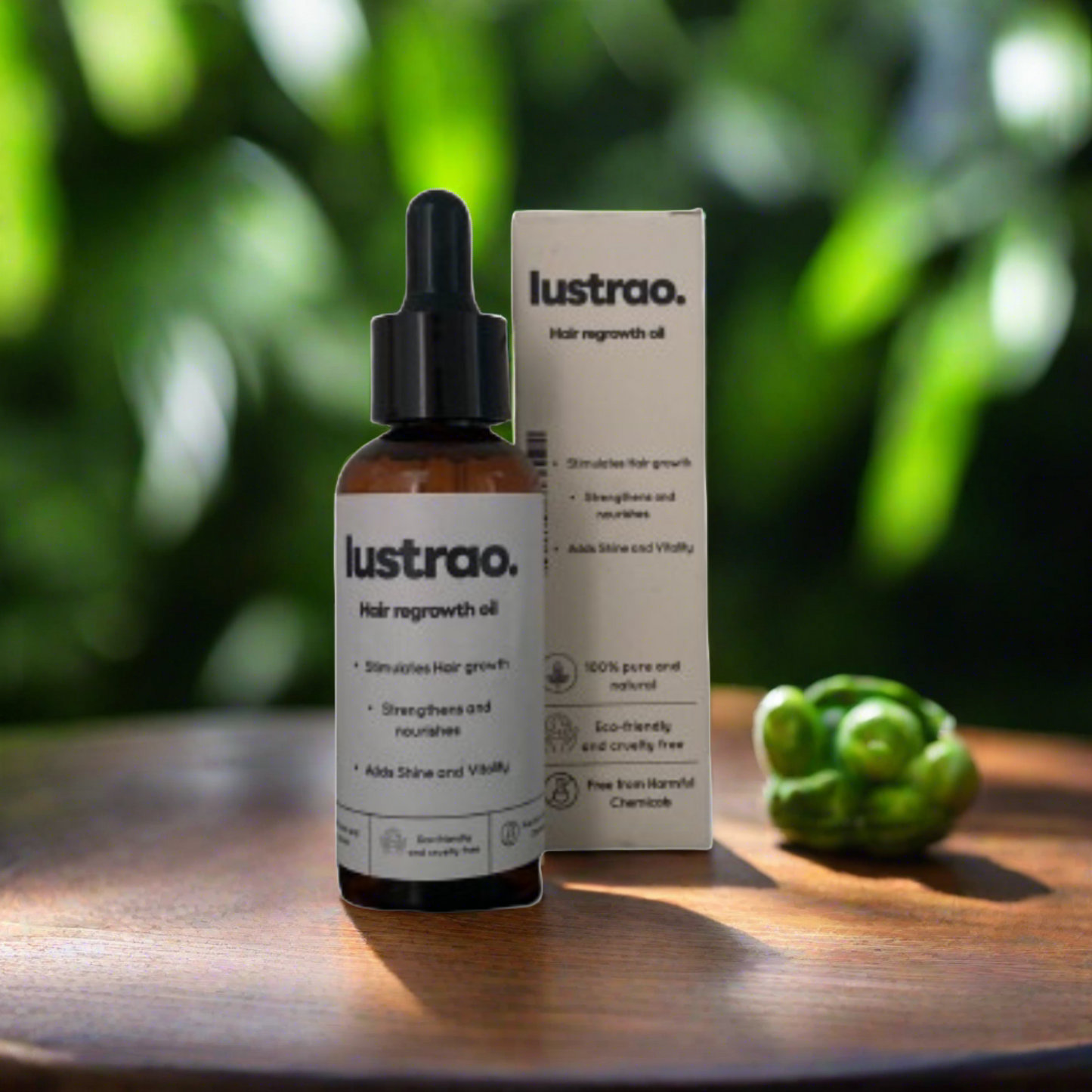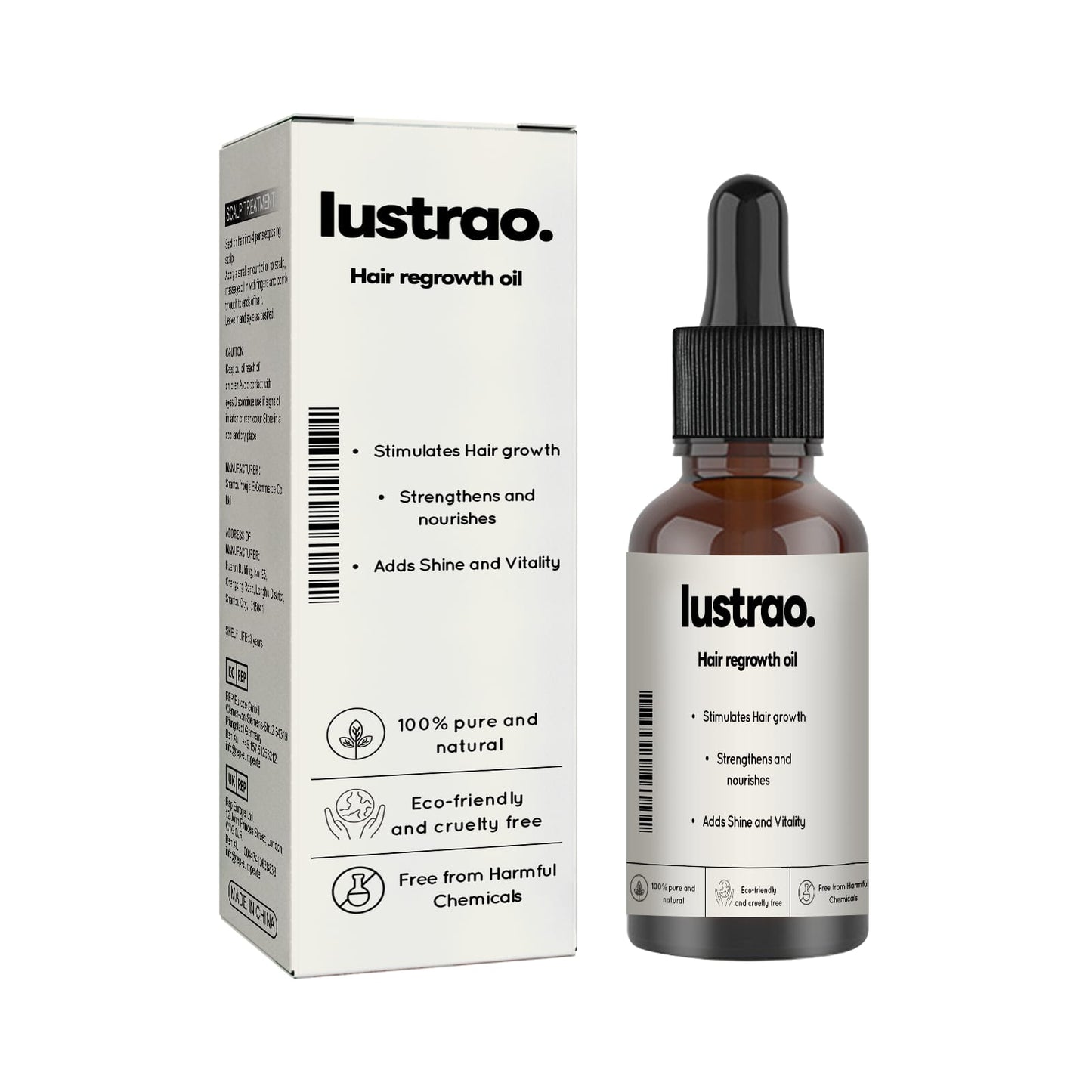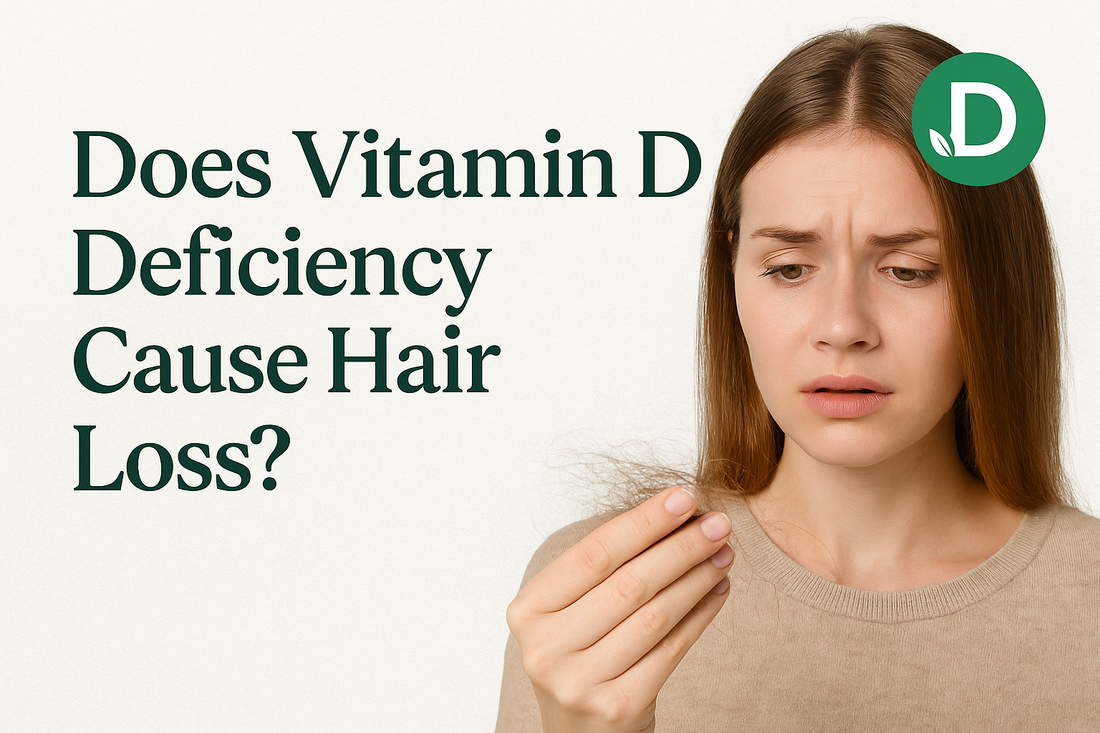
Does Vitamin D Deficiency Cause Hair Loss?
Share
Does Vitamin D Deficiency Cause Hair Loss?
Vitamin D deficiency can cause hair loss. Several studies suggest that low vitamin D levels may be linked to hair loss conditions like androgenetic alopecia and alopecia areata. This essential nutrient plays a crucial role in stimulating hair follicle health and promoting the hair growth cycle. Without enough vitamin D, hair follicles may become dormant, leading to thinning or shedding.
In this post, we’ll explore the scientific links between vitamin D and hair growth, symptoms of deficiency, ways to naturally increase your vitamin D levels, and what to do if you’re struggling with hair loss.
What is Vitamin D and Why Does It Matter for Hair?
Vitamin D is a fat-soluble vitamin that supports immune health, calcium absorption, and—importantly for this topic—the creation of new hair follicles. Hair follicles are the tiny pores in the scalp where hair growth begins.
A 2021 study published in the International Journal of Dermatology found a significant association between low serum vitamin D levels and androgenetic alopecia, more commonly known as male or female pattern baldness (source).
How Does Vitamin D Deficiency Affect Hair?
Here’s how vitamin D deficiency may lead to hair loss:
- Inhibits follicle cycling: Vitamin D helps regulate the growth and shedding cycles of hair. A deficiency can slow down this cycle.
- Increases inflammation: Low vitamin D levels are linked to increased scalp inflammation, which can hinder hair follicle function.
- Worsens autoimmune triggers: In people with conditions like alopecia areata, a vitamin D deficiency may worsen immune system misfires that attack hair follicles.
Quote from Expert:
“Vitamin D plays a vital role in the anagen (growth) phase of the hair cycle. Patients with thinning hair or alopecia should always be screened for deficiency.”
— Dr. Rebecca Marcus, Board-Certified Dermatologist
Symptoms of Vitamin D Deficiency (Beyond Hair Loss)
While hair loss may be an early sign of deficiency, other symptoms often appear, including:
- Fatigue and tiredness
- Frequent illnesses or infections
- Bone or back pain
- Mood changes, like depression
- Muscle weakness
- Slow wound healing
Scientific Studies That Link Vitamin D Deficiency and Hair Loss
Here are key studies supporting the connection:
- A 2017 study in Dermatology and Therapy found significantly lower vitamin D levels in people with alopecia areata compared to healthy individuals (source).
- A 2013 study showed that topical application of calcipotriol, a vitamin D analog, helped regrow hair in patients with alopecia (source).
What Can You Do If You Have Vitamin D Deficiency Hair Loss?
1. Get Tested
Ask your GP for a 25-hydroxy vitamin D blood test. Levels below 30 ng/mL are typically considered deficient.
2. Get More Sunlight
Your body produces vitamin D when exposed to sunlight. Just 10–30 minutes of midday sun a few times a week can help, depending on skin tone and location.
3. Add Vitamin D-Rich Foods
Include more of these in your diet:
- Fatty fish (salmon, mackerel, tuna)
- Fortified dairy and cereals
- Egg yolks
- Cod liver oil
4. Consider Supplements
Many people require supplements, especially in winter. The NHS recommends 10 micrograms (400 IU) daily for most adults, though higher doses might be advised under medical supervision.
5. Use Nourishing Hair Products
If your hair is shedding or thinning, it’s essential to strengthen it from the outside too.
Try Lustrao Hair Regrowth Oil—our all-natural, vitamin-rich formulation that supports follicle health, reduces breakage, and encourages new growth.
Can Vitamin D Supplements Reverse Hair Loss?
Possibly—if the cause of your hair loss is due to low vitamin D levels, supplements may help halt shedding and support regrowth. However, the results can vary based on individual health and whether other factors are contributing to hair loss.
Prevention Tips: Reduce Your Risk of Hair Loss
- Ensure a balanced diet with adequate vitamin D
- Protect your scalp from harsh treatments
- Use gentle, sulfate-free shampoos and conditioners
- Massage your scalp regularly with nourishing oils
- Avoid tight hairstyles that stress your roots
FAQs: Vitamin D & Hair Loss
Q: Can a vitamin D deficiency cause hair to fall out in clumps?
A: Yes, especially in autoimmune-related hair loss like alopecia areata.
Q: How much vitamin D do I need per day?
A: The recommended daily intake is 600 IU for adults under 70. Speak with your doctor before taking high doses.
Q: Can I take biotin and vitamin D together?
A: Absolutely. Biotin and vitamin D can work synergistically to support hair and skin health.
Q: How long does it take for hair to grow back after treating a deficiency?
A: Visible results may take 2–3 months. Hair growth is a slow process and requires consistency.
Q: Does Lustrao Hair Oil contain vitamin D?
A: While we don’t include vitamin D as an ingredient, our blend of rosemary, castor, and peppermint oil is designed to stimulate blood flow and nourish hair follicles—supporting regrowth from the outside-in.
Related Articles
Conclusion
Vitamin D deficiency is a silent contributor to hair loss that often goes unnoticed. Whether you're dealing with excessive shedding or patchy bald spots, it's worth checking your vitamin D levels and making changes to both your diet and hair care routine. Backed by science and recommended by dermatologists, improving your vitamin D status can be one of the most effective steps toward a fuller, healthier head of hair.


